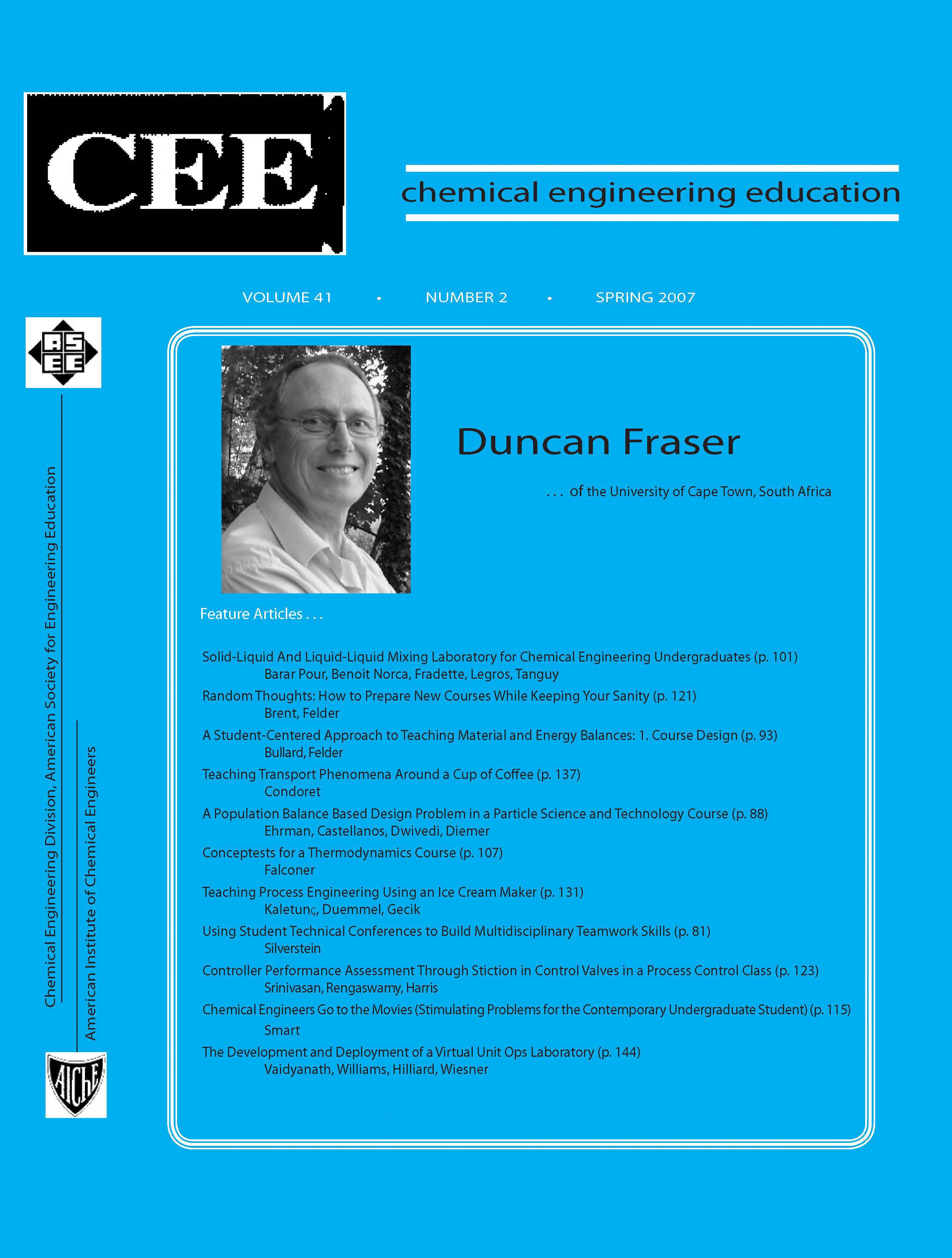Teaching Process Engineering Using an Ice Cream Maker
Abstract
The ice cream laboratory experiment is designed to illustrate and promote discussion of several engineering and science topics including material and energy balances, heat transfer, freezing, mass transfer, mixing, viscosity, and freezing point depression in a sophomore level engineering class. A pre-¬lab assignment requires the students to develop an ice cream formulate ion within given constraints of available ingredients and percentages of fat, carbohydrate, and protein in the final product for which the students apply the material balance concept. During the experiment, students use a one-liter electric home ice cream maker modified in our laboratory with instruments to monitor temperature, mixing speed, and mixing force. Students analyze the collected data to determine t he heat energy removal during processing, to calculate the mixing power dissipated to ice cream, and to estimate the viscosity of the ice cream.


